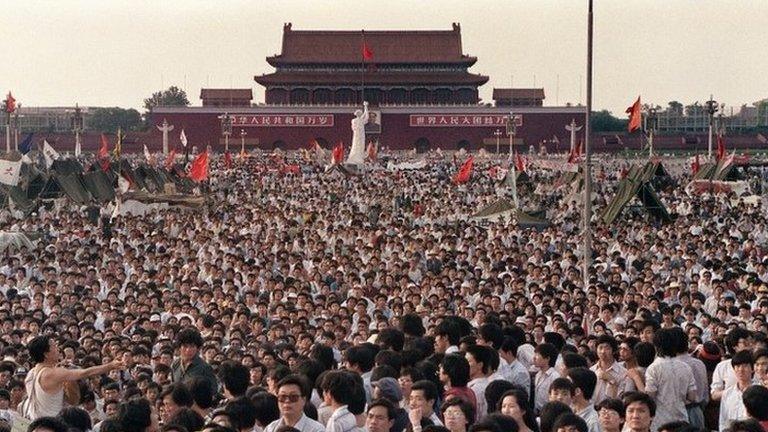Mourners mark China leader Zhao Ziyang's death anniversary
- Published
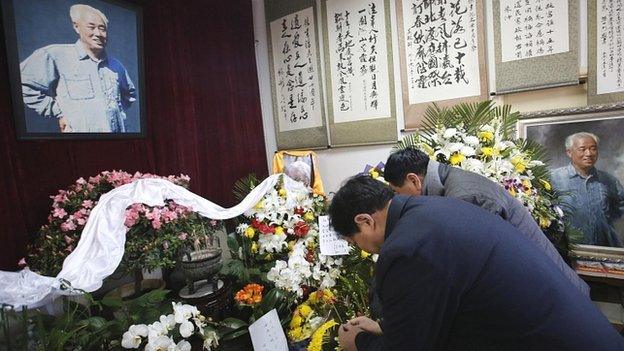
More than 100 people paid their respects to the former leader of the Communist Party
Mourners have gathered to mark the 10th anniversary of the death of China's purged former leader, Zhao Ziyang.
More than 100 people braved police surveillance to go to what was once his courtyard home in Beijing.
Mr Zhao was detained after opposing the use of force to end the protests in Beijing's Tiananmen Square in 1989.
The former Communist Party leader was under constant house arrest until his death in 2005, and his name is still rarely mentioned in official circles.
The mourners took flowers and bowed low before photographs of Mr Zhao, in what appeared to be an impromptu ceremony.
Police officers were stationed outside the compound. They allowed mourners to enter the house to pay their respects, but stopped journalists from going in.
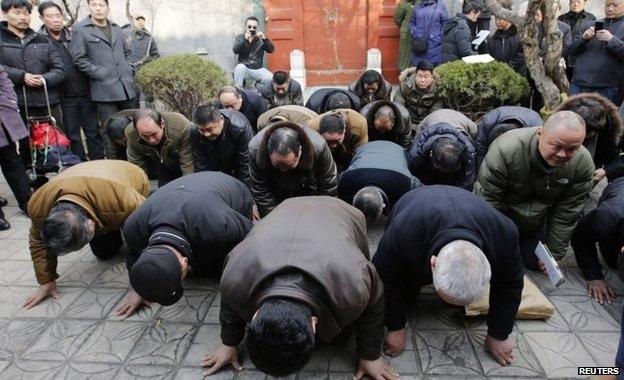
Mourners bowed low before Mr Zhao's photo
Mr Zhao's former adviser, Bao Tong, said that China's current leaders did not know how to deal with Mr Zhao's legacy.
"I think that the government is very conflicted about its opinion of Zhao Ziyang," Mr Bao told Reuters news agency.
"They're afraid that if they do not allow the public to remember him then they will make a mistake, and will be criticised by the public."
But he added that China's leaders were also afraid to allow the public to remember Mr Zhao, as they were worried people would ask them why they decided to force him to step down.
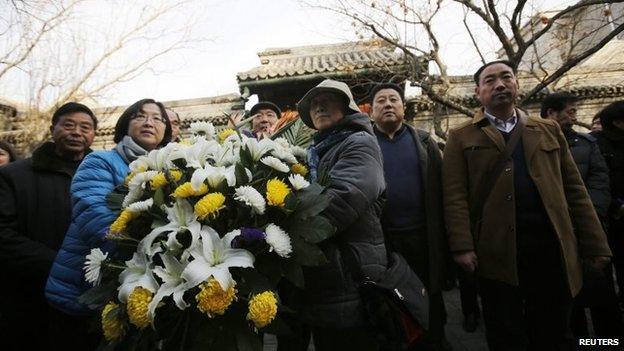
Supporters brought flowers to Mr Zhao's former house
In an editorial published on Saturday, the party-backed Global Times newspaper sought to explain the official silence surrounding Mr Zhao and his downfall.
It said the silence should itself be taken as a comment on how the party felt.
"In the past 25 years, China has pursued a path that [Mr] Zhao and his think tanks opposed at that time, becoming the world's second-largest economy. China is using its actions and achievements to answer questions over the sensitive issues," read the article.
Zhao Ziyang was promoted by China's former supreme leader, Deng Xiaoping, who was looking for someone to reform the economy and open up the country to the outside world.
Mr Zhao's position seemed assured when he was made general secretary of the ruling Communist Party in 1987.
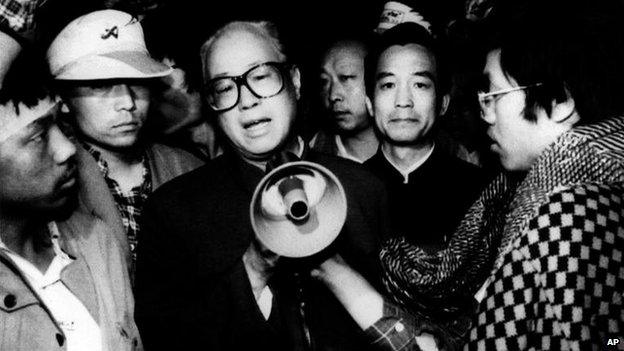
Mr Zhao asked student protesters in Tiananmen Square to disperse, shortly before the crackdown
But the protests by students and residents in Beijing - and elsewhere across China - two years later revealed deep divisions within the party leadership.
Hundreds of thousands called for democratic reforms in a peaceful demonstration largely focused on a gathering in Tiananmen Square.
Mr Zhao, who had a more liberal attitude than other leaders, favoured a conciliatory approach towards the protesters.
That view eventually lost to those who wanted to bring in the army, and Mr Deng approved the detention of his former favourite.
The crackdown authorised by the authorities killed hundreds in the streets of Beijing.
In a book that is thought to have been compiled from secret recordings made by Mr Zhao while under house arrest, he said the killing of protesters had been a "tragedy".
- Published16 January 2014
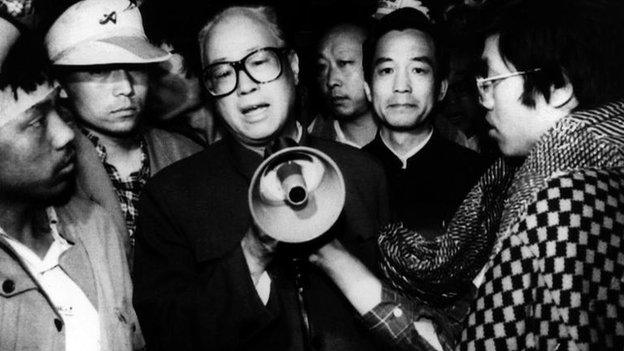
- Published2 June 2014
